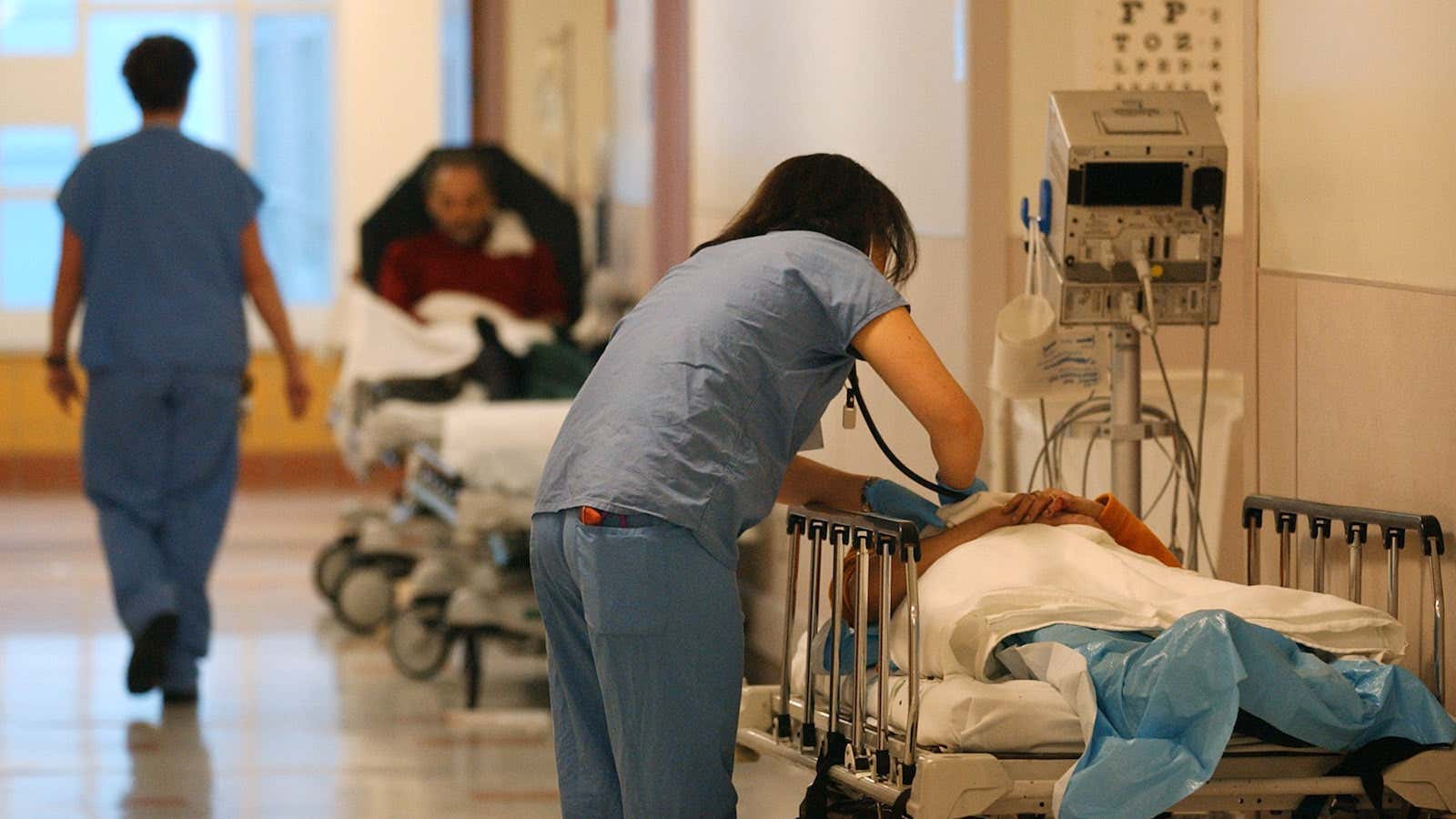Toward the end of my intern year in medicine, the attending physician asked our group of residents to talk about a patient who had affected us that year. Perhaps to his surprise—and to all of ours—most of the women, and even some of the men, cried as we talked about the patients we had lost.
For good doctors, stress is inevitable. We recognize that our decisions have high stakes, and we understand that error is unacceptable. With such a high bar of perfectionism and self-sacrifice, it’s unsurprising that so many doctors struggle with mental illness. In fact, nearly a third of doctors in training are depressed or exhibit symptoms of depression, according to a December study published by the Journal of the American Medical Association (JAMA).
Some of the contributing factors to the problem are laid out by Thomas Schwenk in an accompanying JAMA editorial: sleep deprivation, excessive workloads and long hours, an often-abusive and rigid hospital culture, bureaucracy, disempowerment, the threat of malpractice suits, and more. But we also need to understand that the nature of the medical profession itself puts doctors at risk for depression. To deal with this deeper issue, we need to stop sidelining psychiatry—the specialty that can help physicians heal themselves.
Psychiatry is often regarded as the ugly stepchild of medicine. Doctors understand that mental illness can’t be cured with surgery or a quick round of antibiotics, and that it’s accompanied by often-ambiguous diagnoses and symptoms. Yet it’s the one specialty that openly connects emotional life experience with human biology.
Simply acknowledging that doctors are human beings with emotional and mental health needs will require a cultural shift in medical training. Traditionally, medical schools encourage students to detach from their emotions. In gross anatomy class, students learn to view the human body in distinct parts rather than treat it as a whole. As they train to perform physical exams, they touch and palpate private areas of patients’ bodies with clinical focus. Even during clinical rotations, when students finally get hands-on training with patients and work with medical teams, they push their emotions underground in order to remain calm and fearless in the face of blood, guts and suffering.
Yet the weight of responsibility that doctors in training feel cannot be underestimated. I nearly had a nervous breakdown when it hit me during my first call that my choices could mean life or death. I couldn’t stop thinking about the consequences if I ordered the wrong lab, prescribed the wrong dose of medication, or failed to check someone properly.
Such thoughts drove me to tears on my first night as a resident. I thought about quitting. Maybe I could to go to law school or open a coffee shop—anything but take on such an enormous burden.
What saved me was the support I received from my colleagues. I started in a psychiatry rotation. After my difficult first call, my peers and my attending physician noticed that something was wrong with me. They sat me down and listened. They reassured me that I was doing better than I realized, and told me it was normal to feel overwhelmed at the start. Psychiatric training had taught them to be empathetic, supportive and communicative.
Their advice worked: I soon gained confidence. Over the next few months, despite a steep learning curve, I took comfort in the knowledge that I was making progress, connecting with my patients and helping them recover. There were still bumps to come, but what made the difference to me was that in a moment of crisis, I wasn’t left alone.
I think every medical residency program should offer residents a similar psychiatry-based safety net. The programs could be backed by the psychiatry departments that are already standard in most training hospitals, and staffed by a multidisciplinary team consisting of administrators from multiple specialties.
These resident wellness programs could provide lectures discussing warning signs of depression as well as common stressors and symptoms. They might offer confidential peer support groups as well as self-care training, and publicize mental health provider referrals during orientations.
Such programs have been implemented in several medical schools and residency programs, including Stanford University, which notably created a resident wellness program in 2010 after the suicide of a surgery resident. But they should become a universal standard—even an accreditation requirement. And these programs should not hesitate to emphasize the mental health concerns involved.
The practice of medicine takes a psychological toll on many doctors. But much like other professions that lack room for error, such as the military and the police, medicine tends toward a “put up and shut up” mentality. It’s scary to admit vulnerability and weakness when perfection is necessary and lives are at stake.
Yet this toughness is only a pretense, and does nothing to help people being pushed to their limits. In the face of reports of ever-increasing rates of physician burnout, doctors quitting the profession and even physician suicides, we can’t pretend to be invincible any longer.
Doctors always advocate for compassion with their patients. Now we need to find compassion for ourselves.
